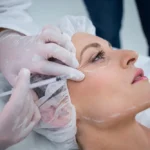
What Does Medical Skin Care Do?
28/08/2025
Is Beauty Without Surgery Possible? Secrets of Medical Aesthetics
30/08/2025What Does Glutathione Therapy Do?
Contemporary living conditions, stress, environmental pollution, unbalanced diet and increased toxin exposure challenge our body's natural defense mechanisms. This leads to increased free radical damage and makes our cells more prone to oxidative stress. At the center of these complex biological processes is a critical molecule called glutathione, one of the cornerstones of our body's ability to protect and repair itself. Glutathione is not only an antioxidant, but plays a central role in many vital functions such as detoxification, immune system support and cellular energy production.

What Does Glutathione Therapy Do?
Decreases in glutathione levels can lead to a wide range of health problems, from chronic fatigue to signs of aging, immune system weakness and various diseases. For this reason, glutathione therapy to optimize glutathione levels and support cellular health has become an important part of holistic medicine approaches. But how valuable is this miraculous molecule for our bodies and what exactly does glutathione therapy do?
Glutathione: The Body's Main Antioxidant and Its Importance
Glutathione is a small peptide made up of three amino acids (cysteine, glutamate and glycine) and is found in every cell in our body. It is often referred to as the "master antioxidant" because it has the ability to replenish other antioxidants and forms a powerful line of defense against cellular damage caused by free radicals. Free radicals are unstable molecules that occur naturally in our bodies or are produced by environmental factors (cigarette smoke, pollution, ultraviolet rays, etc.). These molecules damage cells and DNA, accelerate aging processes and can contribute to the development of chronic diseases.

What is Glutathione and How is it Produced in the Body?
Glutathione is a tripeptide that is naturally synthesized by the body. Glutathione levels in our body are influenced by many factors such as dietary habits, lifestyle, age and genetic factors. Especially sulfur-rich foods (such as broccoli, cabbage, garlic, onions) provide the necessary precursors for glutathione production. However, conditions such as intense stress, chronic diseases, exposure to toxins and aging can exceed the body's capacity to produce glutathione and cause a decline in levels.
Role of Glutathione in Cellular Functions
The role of glutathione in the body is much broader than its antioxidant effect. It plays an active role in the liver's most important detoxification processes, helping to remove toxins and heavy metals from the body. It is critical for the proper functioning of the immune system; it enhances the functionality of immune cells and plays a key role in fighting infections. It is also involved in essential cellular processes such as DNA synthesis and repair, protein and enzyme functions. Thanks to this multifaceted function, adequate levels of glutathione are vital for overall health and well-being.
Glutathione Deficiency and Resulting Health Problems
Decreased glutathione levels lead to a reduced ability of the body to detoxify and increased oxidative stress. This can lead to various health problems. The negative effects of modern lifestyle can rapidly deplete our glutathione stores.
Factors that Lower Glutathione Levels
Factors such as the aging process, environmental toxins (pesticides, air pollution), smoking, alcohol, chronic stress, malnutrition, certain medications and chronic infections can lower the body's glutathione levels. Glutathione depletion increases especially in individuals under intense physical or mental stress. Exposure to heavy metals is also an important factor causing glutathione depletion because the body needs large amounts of glutathione to detoxify these metals.
Symptoms of Glutathione Deficiency and Relationship with Diseases
Glutathione deficiency can manifest itself in a variety of ways, including chronic fatigue, low energy levels, frequent infections, dull or patchy skin, sleep disturbances, muscle and joint pain. In the long term, this deficiency can increase the risk of developing chronic and degenerative diseases such as Parkinson's, Alzheimer's, chronic liver disease, diabetes, cardiovascular disease and even some types of cancer. As the immune system weakens, the body becomes more vulnerable to external threats.

What is Glutathione Therapy? Why is it Preferred?
Glutathione therapy is an approach that aims to increase the body's glutathione levels. This is especially preferable for individuals who are experiencing health problems related to glutathione deficiency or who want to optimize their overall health.

Glutathione Supplementation Methods: Oral and Intravenous (IV)
Glutathione supplements are administered in two main ways: orally (by mouth) and intravenously (through a vein). Oral glutathione supplements may have some difficulties with absorption because digestive enzymes can break down glutathione. Liposomal formulations or supplements containing precursors can help improve oral absorption. However, for those looking for a fast and highly concentrated effect, intravenous glutathione therapy offers a more effective option.
Advantages of IV Glutathione Therapy
İntravenöz glutatyon tedavisi, glutatyonun doğrudan kan dolaşımına verilmesini sağlar. Bu yöntem, sindirim sistemini atlayarak glutatyonun %100 biyoyararlılıkla vücuda ulaşmasını garanti eder. Böylece, hücrelere daha hızlı ve daha yüksek konsantrasyonlarda glutatyon ulaşır, bu da daha hızlı ve belirgin sonuçlar alınmasına olanak tanır. Özellikle bağışıklık sistemini hızlıca desteklemek, detoksifikasyon süreçlerini hızlandırmak veya kronik yorgunluk gibi semptomları gidermek isteyenler için IV glutatyon tedavisi oldukça etkilidir.
Main Benefits and Uses of Glutathione Therapy
The benefits of glutathione therapy range from antioxidant action to detoxification, immune support to skin health. This multifaceted effect makes glutathione an essential part of holistic health approaches.
Powerful Antioxidant Action: Fighting Free Radicals
Glutathione prevents cell damage by reducing oxidative stress caused by free radicals. This slows down the aging of cells and lowers the risk of developing chronic diseases. It strengthens the body's antioxidant defense mechanism, making it more resistant to environmental toxins and internal stressors.
Supporting Detoxification Processes: Liver Health
The liver is the main detoxification organ of our body and glutathione is vital for the liver's ability to clear toxins. Glutathione therapy supports the liver's function, helping to remove harmful substances such as heavy metals, drug residues, alcohol and environmental chemicals from the body. This is especially beneficial for individuals with fatty liver disease or low detoxification capacity.
Strengthening the Immune System: Protection Against Diseases
Glutathione is essential for immune cells (especially lymphocytes and natural killer cells) to function properly. When glutathione levels are sufficient, the immune system becomes stronger and can fight infections, viruses and bacteria more effectively. This can reduce the incidence of common infections such as colds and flu.
Skin Health and Anti-Aging Effects: Skin Tone and Elasticity
Thanks to its antioxidant properties, glutathione combats the signs of aging by reducing oxidative damage to the skin. It can even out skin tone, reduce the appearance of blemishes and give the skin a brighter, more vibrant appearance. It improves skin elasticity and reduces the appearance of fine lines through its indirect contribution to collagen and elastin production. Some research also suggests that glutathione may have skin whitening effects.
Boosting Energy Levels and Reducing Chronic Fatigue
Glutathione is important for the efficient functioning of mitochondria (the power plants of cells). Adequate glutathione levels can help reduce chronic fatigue and increase overall energy levels by optimizing cellular energy production. This can be a significant benefit, especially for individuals who experience chronic fatigue syndrome or feel constantly exhausted.
Contributions to Neurological Health and Cognitive Function
The brain is particularly susceptible to oxidative damage due to its high metabolic rate and oxygen consumption. Glutathione helps maintain neurological health by protecting brain cells from the damaging effects of free radicals. Some research suggests that glutathione may play a potential role in the management of neurodegenerative diseases such as Parkinson's and Alzheimer's. It may have positive effects on focus and memory by supporting cognitive functions.
Supportive Role in Chronic Disease Management
Oxidative stress and inflammation play an important role in many chronic diseases such as diabetes, cardiovascular disease, autoimmune disorders and inflammatory conditions. By helping to reduce these processes, glutathione therapy can alleviate the symptoms of chronic diseases and improve overall health. In many cases it is used as an adjunct to the main treatment.
Who is Glutathione Therapy Suitable for?
Glutathione therapy may be suitable for many people seeking to improve their overall health, support detoxification processes or support for specific health issues.

Eligible Candidates and Potential Beneficiaries
People who experience chronic fatigue, suffer from frequent infections, have a weak immune system, want to support liver function, are exposed to environmental toxins, want to improve skin quality, are looking for anti-aging effects, and those with certain neurological diseases or autoimmune disorders may benefit from glutathione therapy (under a doctor's supervision). Intense athletes and those who want to improve performance may also turn to glutathione therapy for cellular regeneration.
Contraindications and Cautions
Pregnant or breastfeeding women, those with liver or kidney failure, those undergoing active cancer treatment (without oncologist approval), those with certain blood disorders and those with known allergies to glutathione may not be suitable candidates for glutathione therapy. If you have any medical conditions or take regular medication, you should consult a specialist before starting treatment. Your doctor will assess your health condition and decide whether glutathione therapy is suitable for you.
Glutathione Treatment Process: Application and Session Information
Glutathione therapy is planned and administered with an individualized approach. The application process is usually simple and does not interfere with patients' daily lives.
Initial Assessment and Personalized Treatment Plan
Before starting glutathione treatment, a detailed health assessment is performed by a specialized physician. A personalized treatment protocol is determined taking into account the patient's general health status, lifestyle, current complaints and expectations. If necessary, glutathione levels or oxidative stress markers can be measured with blood tests. This evaluation helps to determine the most appropriate dose and session frequency.
How is IV Glutathione Administered?
Intravenous glutathione therapy is performed by slowly administering glutathione mixed in a saline solution through a vein. The duration of administration usually varies between 15-30 minutes. During the procedure, the patient sits or lies comfortably. It is performed under sterile conditions by an experienced health professional. This method allows the active substance to enter the bloodstream directly and quickly.
Number of Sessions and Frequency of Treatment
The number and frequency of glutathione therapy sessions depends on the problem to be treated, the person's general health condition and the desired results. It is usually initially administered as 1-2 sessions per week and can be planned as a course of 4 to 10 sessions in total. It can then be continued once a month or at longer intervals as maintenance treatment. Your specialist will determine the most suitable session program for you.

Things to Consider After Glutathione Treatment
After glutathione treatment, no special care is usually required. However, it may be useful to pay attention to some points to increase the effectiveness of the treatment and minimize possible mild side effects.

Post-Treatment Recommendations and Lifestyle Changes
Drinking plenty of water, eating a healthy and balanced diet, exercising regularly and avoiding stress after treatment will help maintain glutathione levels and reinforce the effects of the treatment. A slight bruising or tenderness may occur at the injection site after the procedure, this is normal and will disappear in a short time. Excessive alcohol consumption and smoking should be avoided as they negatively affect glutathione levels.
Expected Impacts and Persistence of Results
The effects of glutathione treatment vary from person to person, but generally after a few sessions, increased energy levels, glowing skin, better sleep quality and general well-being can be observed. Resistance to infections can be increased by strengthening the immune system. The permanence of the results depends on the person's lifestyle, dietary habits and general state of health. It is possible to maintain these effects with maintenance treatments or lifestyle changes.
Write to Us
Let's Create Your Appointment Now
Frequently Asked Questions About Glutathione Therapy
You can find the most curious questions and answers about glutathione therapy below:
Frequently Asked Questions (FAQ)
The duration of glutathione treatment usually varies between 15 and 30 minutes per session for intravenous administration. The total treatment course may take 4 to 10 sessions depending on the needs of the person and the treatment plan.
Intravenous glutathione therapy is a procedure similar to the insertion of an IV into a vein. It is usually not painful except for minimal discomfort or a pinprick sensation.
Glutathione treatment is generally considered safe. Rarely, mild bruising, redness or tenderness may occur at the injection site. In very rare cases, allergic reactions or stomach upset may occur. The experience of the specialist administering the treatment and hygiene conditions minimize these risks.
Pregnant or breastfeeding women, people with severe renal or hepatic impairment, people undergoing active cancer treatment (without a doctor's approval) and people with a known allergy to glutathione should not be treated with glutathione.
To increase glutathione levels naturally, it is important to consume sulfur-rich foods (garlic, onions, broccoli, cabbage, cauliflower) and foods containing vitamin C and vitamin E. Supplements that support glutathione synthesis such as alpha lipoic acid, selenium and N-acetylcysteine (NAC) can also be considered. Regular exercise and avoiding stress also help to maintain glutathione levels.

Contact Now for a Holistic Approach to Your Health
As Dr. Melis Ülger Clinic, we are at your side to individually determine the most appropriate glutathione treatment protocols to strengthen your immune system, detoxify your body and support regeneration at the cellular level. To make your skin more vibrant and radiant and to support your overall health you can make an appointment by contacting usyou can find answers to all your questions.









